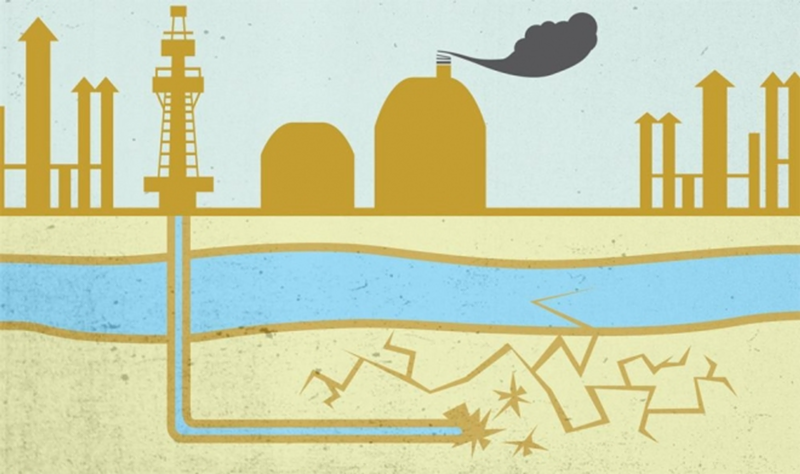Gov. John Kasich yesterday outlined a plan to reduce Ohio income taxes over a five-year period and make up for the reduction in revenue by taxing the oil and natural gas extraction industries his administration is luring to the state. The resultant pushback from gas and oil companies now pits opposition to various parts of Kasich’s drilling plan from both sides — industry and environmentalists.
Dan Whitten, a vice president at America’s Natural Gas Alliance, a Washington-based trade group, had already expressed opposition to the idea, on March 8 telling Bloomberg in an email: “Natural-gas production is a capital-intensive undertaking and we believe generally that fees should be directed to communities where we work, with careful consideration of the possible direct jobs impacts.”
Other trade organizations today spoke out against the increased tax rates, as they would prefer to take all the energy out of Ohio’s land and not pay higher taxes.
Thomas Steward, executive vice president of the Ohio Oil and Gas Association, told The Cleveland Plain Dealer that his organization will fight the tax increase when the plan goes before lawmakers.
"This sounds like something that would have come from the left," Steward said.
Among the methods of extracting the natural gas is a controversial process called fracking, which involves blasting pressurized slurries of water, chemicals and sand into ancient shale formations, thousands of feet below ground. CityBeat reported on Jan. 24 that 43 households have filed a class-action lawsuit in response various environmental hazards allegedly caused by fracking in Geauga County, Ohio. From the story:
Fracking in Ohio is booming rapidly, thanks in part to the barely tapped potential of the vast Utica Shale, a gassy, 445-million-year-old rock formation that lies beneath a third of the state, at a depth of around 7,000 feet. Until last year, only three permits had been granted for horizontal drilling into the Utica, but in 2011 the number exceeded 40.
In 2004 Ohio’s State Legislature repealed the abilities of elected local governments to regulate or refuse gas drilling, instead handing full authority to the industry-friendly Ohio Department of Natural Resources (ODNR). In 2005, the U.S. Congress ruled to exempt fracking from regulation under the Safe Drinking Water Act.
The gas extraction process has been found to be so environmentally detrimental that France and Bulgaria have banned the practice in their countries. New Jersey is the only U.S. state where it is banned. CityBeat in January reported that State Rep. Denise Driehaus (D-Price Hill) had sponsored one of three state bills that would tighten fracking regulations and Rep. Robert Hagan (D-Youngstown) introduced a bill to put a moratorium on wastewater injection.
Kasich’s interest in reducing income taxes comes one year after his two-year budget cost counties, municipalities and townships $167.1 million, according the The Columbus Dispatch, which described the plan’s impact on the state in the following manner: “Kasich's budget slashes aid to local governments: Tuition hikes limited to 3.5% for higher education.”
Ohio’s budget deficit was $8 billion when Kasich offered his 2011 budget, which his administration said would save $1.4 billion through reform measures that included reduced funding for social service programs such as the health and developmental disability departments.
Despite the still existing state budget deficit, Kasich wants to reduce income taxes, even though his spokesman Scott Milburn proudly told Bloomberg that, “the governor has already cut taxes by more than $800 million.”






